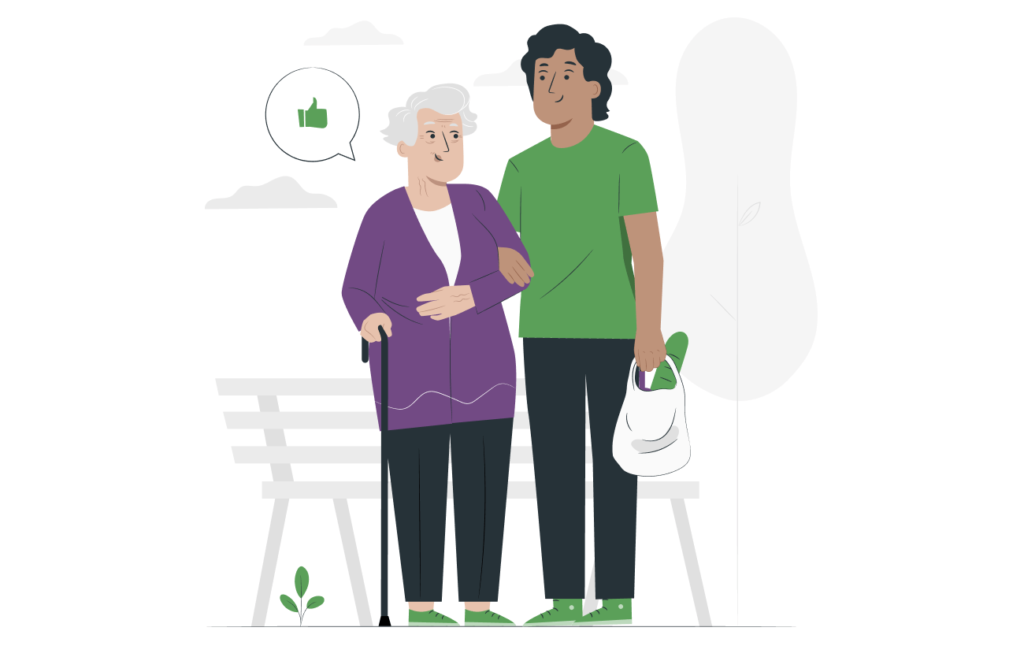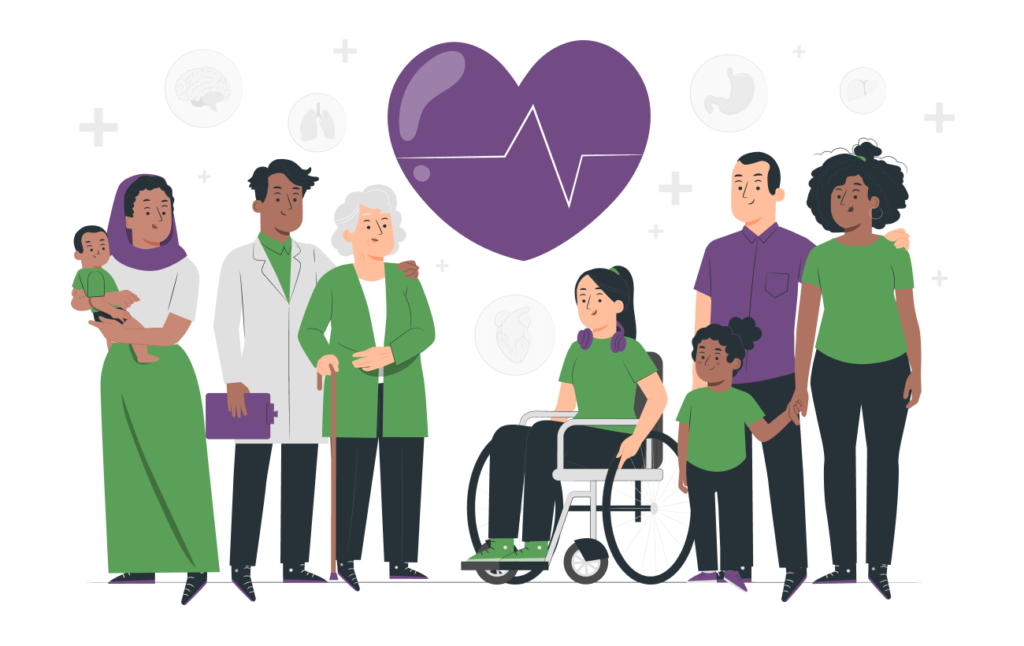5 tips for your new role as a caregiver

When my dad suffered a stroke in the summer of 2014, I became one of his caregivers overnight. With very little health care knowledge, I was guiding my dad through his care and recovery process. That experience shaped my perspective on health and deepened my appreciation for those who provide care to others.
While caregiving for my dad was temporary (I’m pleased to share that he made a near full- recovery), nearly one in five Americans, an estimated 53 million people, provide unpaid care to adults with health or functional needs every day. But those numbers may be understated, as many people don’t describe themselves as caregivers. This was true for me. I did not realize I was acting in a caregiver capacity during this time with my dad.
As I reflect on my experience as a caregiver, I’m reminded of lessons I learned:
Don’t be afraid to ask questions if you do not understand something.
Dealing with family health issues can be both overwhelming and intimidating. One of the ways I stayed calm was by asking questions to the medical staff. At one point during my dad’s hospital stay, I asked a nurse to explain to me the kind of stroke he had suffered – there are two main types: ischemic and hemorrhagic. My dad had suffered the latter, which meant a blood vessel had ruptured inside his brain. Taking time to slow down and ask questions gave me assurance. It also inspired me to learn more about his condition and read up on outcomes.

Write things down and stay organized.
Caregivers are faced with a tremendous amount of responsibility and with that comes … stress. Caregiver stress is very common and can make it more difficult for people to retain and recall information. That’s why it’s important to keep things like medical records, medications, and provider phone numbers documented and organized. While in the hospital, I found it helpful to keep a log of my dad’s changing condition, vitals, and progress. Having something tangible to reference made it easier when doctors asked questions, or when family and friends needed an update.
Tip: By completing a release of health information form, a caregiver will have access to the care recipient’s health information. This will enable a caregiver to ask questions about health care benefits, claims, and spending.
A note about caregiver stress. It’s important to take care of yourself first. Here are some tips for managing stress as a caregiver.
Communicate in a way that works best for you.
Close friends and family will want to stay informed and involved – this is especially true in emergency situations. In a time when communication is at our fingertips, it’s important to determine how you’ll choose to engage with your circle and let them know. Otherwise, you may be drowning in calls, emails, texts, and social media messages from well-meaning people. Early on, I would update family by phone call. This process later evolved to group texts and email.
Email was my preferred method, as it allowed me to cast a wider net and share a more storied update. It also meant folks could reply to just me, taking the pressure off replying to a group .

Accept help. Ask for help.
Caregiving can be time-consuming and emotionally draining. Asking for help and accepting help are important—often uncomfortable—traits that caregivers must master. The key when asking for help is to be specific. Does your loved one need dinner for the week? Assign a day to each helper. Do you need some time off? Pick a date and window of time and ask if a helper can fill in for you. You’ll get a lot farther if you tell people exactly what you need. The best part, you’ll ease some of the burden you feel and grow closer to those who are stepping in to assist, too.
Maybe your loved one doesn’t need help, but you do! This was true for me. During my time as a caregiver, I leaned on coworkers to help me at work, I had neighbors help with my dog, and my husband stepped up with responsibilities at home. Being assertive about your needs is important.
Are you really struggling? It might be time to consider respite care.
Identify available resources.
One thing I wish I had done was seek out additional support. Admittedly, I didn’t know other help existed. Be sure to consult with your insurance company and engage your community to learn about available resources. Your local county office, department of health, NY Connect, and faith community are great places to start. You don’t need to journey alone. Identify and take advantage of the resources you are eligible for.
Are you providing care to a CDPHP plan member? Review these caregiver resources or call the single-source referral line at 1-888-94-CDPHP (23747) to talk with an expert one-on-one.
 The Daily Dose
The Daily Dose
Comments are closed.